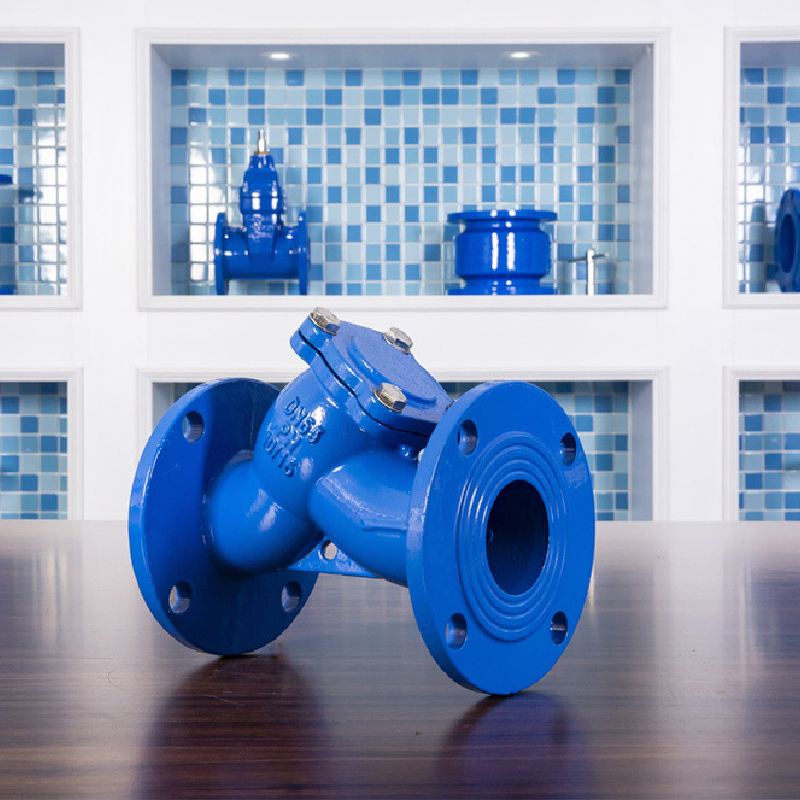снеж . 12, 2024 18:04 Back to list
butterfly valve stainless steel body
Butterfly Valve with Stainless Steel Body An Essential Component in Fluid Control
In the realm of industrial and mechanical engineering, the importance of efficient control over fluid flow cannot be overstated. One of the most effective components for achieving this is the butterfly valve, particularly those manufactured with a stainless steel body. This article will explore the design, benefits, applications, and maintenance of stainless steel butterfly valves, highlighting why they are a preferred choice in various industries.
Design and Functionality
Butterfly valves are quarter-turn rotational control devices that can be used for isolation or regulation of flow. The core of the butterfly valve is a disc, which is mounted on a rotating shaft. When the valve is fully open, the disc is parallel to the flow, allowing for maximum flow efficiency. Conversely, when the valve is closed, the disc is perpendicular to the flow, effectively blocking it. This simple yet effective design facilitates rapid opening and closing, making butterfly valves ideal for systems that require frequent operation.
When it comes to construction materials, stainless steel offers a compelling choice. This alloy, known for its durability and resistance to corrosion, is particularly beneficial in environments where fluids may contain corrosive elements or where hygiene is a concern, such as in food processing or pharmaceuticals.
Benefits of Stainless Steel Butterfly Valves
1. Corrosion Resistance Stainless steel is inherently resistant to rust and corrosion, which significantly extends the service life of the butterfly valve. This property is crucial for valves used in chemical processing, wastewater treatment, and marine applications.
2. High Strength-to-Weight Ratio Stainless steel butterfly valves are lightweight yet strong. This characteristic allows for easier handling and installation, reducing the need for bulky supports and brackets.
3. Temperature Resistance Stainless steel can withstand a wide range of temperatures, making these butterfly valves suitable for various applications, including high-temperature steam systems.
4. Low Torque Requirements The design of butterfly valves allows for easy operation with minimal torque, which reduces the wear on the actuator and extends its lifespan.
butterfly valve stainless steel body

Applications
Stainless steel butterfly valves are utilized across several industries, including
- Water and Wastewater Treatment They control the flow of water in treatment plants, ensuring efficient processing and distribution. - Food and Beverage Industry The hygiene standards in food processing are pivotal, and stainless steel valves help maintain cleanliness and prevent contamination. - Chemical Processing Given their corrosion resistance, stainless steel butterfly valves are ideal for handling various corrosive chemicals.
- HVAC Systems They regulate airflow in heating, ventilation, and air conditioning systems, contributing to efficient climate control in buildings.
- Pharmaceuticals In the pharmaceutical industry, where hygiene is paramount, stainless steel butterfly valves ensure that processes remain contamination-free.
Maintenance Considerations
While stainless steel butterfly valves are durable and require less maintenance than their counterparts, regular inspections are essential. Common maintenance practices include
- Visual Inspections Regularly check for any signs of wear or leakage.
- Lubrication Ensure the rotating shaft and seal are well-lubricated to facilitate smooth operation.
- Seal Checking Inspect seals for any degradation, as their integrity is vital for maintaining reliability and preventing leaks.
In conclusion, stainless steel butterfly valves represent a critical component in modern fluid control systems. Their design, coupled with the advantages of stainless steel, makes them optimal for diverse applications. As industries continue to prioritize efficiency and reliability, the demand for stainless steel butterfly valves is poised to grow, reinforcing their key role in engineering and industrial processes.
-
Flanged Gate Valve: A Reliable Choice for Industrial and Municipal SystemsNewsAug.20,2025
-
Soft Seal Gate Valve: A Modern Solution for Reliable Pipeline ControlNewsAug.20,2025
-
Gate Valve Types: Understanding the Options for Your Pipeline SystemsNewsAug.20,2025
-
Y Type Strainer: Essential for Clean and Efficient Flow SystemsNewsAug.20,2025
-
Cast Iron Y Strainer: Durable Solutions for Demanding ApplicationsNewsAug.20,2025
-
Flanged Y Strainer: An Essential Component in Industrial Filtration SystemsNewsAug.20,2025
Related PRODUCTS









